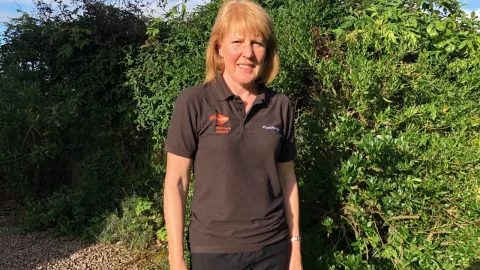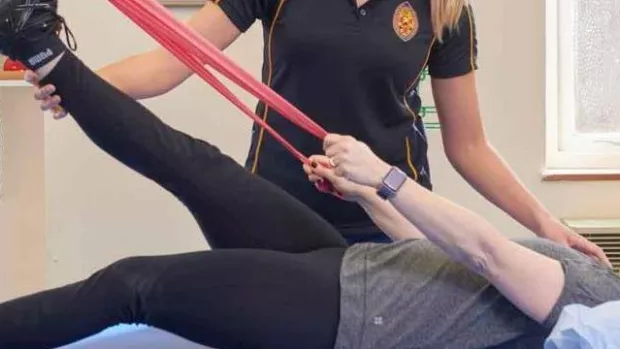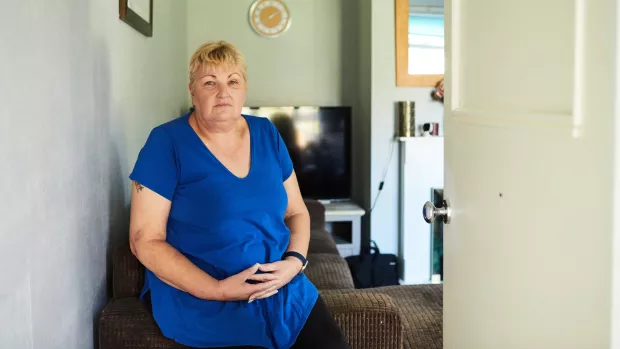
Some people need that face-to-face support
Rachel Flinn is a physiotherapist at our MS Centre in Belfast, Northern Ireland. She talks about the positives and negatives of having to move her work online.
In mid-March, like a lot of people, my job changed completely. On 12 March I saw 5 patients in the physiotherapy gym of the Belfast Resource Centre and took a seated Pilates class with eight participants, in person.
Soon after, the centre closed and we were asked to work from home with our laptops. I’d never worked from home before, so it was all new for me.
Online Pilates classes for people with MS
Trying to get used to a new way of supporting my patients, I started running my Pilates classes on Zoom. The virtual sessions have been very beneficial as exercise therapy. They involve stretching or strengthening, advice about posture, and gait re-education.
I was aware that all outpatient physiotherapy was cancelled due to the redeploying of all NHS staff to help with the coronavirus pandemic. At the beginning of moving online I continued with my previous caseload and with those who were on my waiting list.
Soon after, I contacted the MS nurses and MS consultants to let them know I was offering virtual physiotherapy and classes. I started to get an increased number of referrals from the MS nurses. Normally I'd receive a number of self-referrals, but these reduced.
The limitations of MS physiotherapy online
But my experience of working online has also shown me the gaps which can’t be filled with virtual classes and sessions.
For a start, it's not possible to do any hands on physiotherapy. Things like massaging soft tissue, manual assistance with stretching, and mobilising stiff joints to increase their range of movement. Or helping people to use a standing frame, or to walk in parallel bars.
Some people also struggle with the technology - because they don’t have any devices with screens or have a device but don’t know how to use it. Or, they might have difficulty processing virtual information.
Others miss the social part of the experience, of coming in to the centre and meeting others with MS and the staff.
Online sessions can be beneficial. But there are some people in our community who need, and want, that face-to-face care and support. We should do everything we can to make sure they can get it.
Everyone with MS should get the support they need, during the pandemic and beyond. Ask your local health leaders to take our pledge now.



